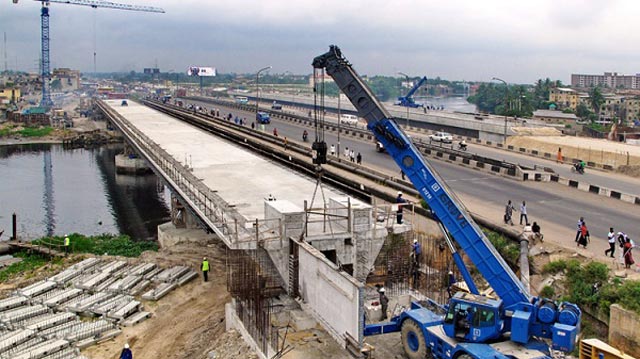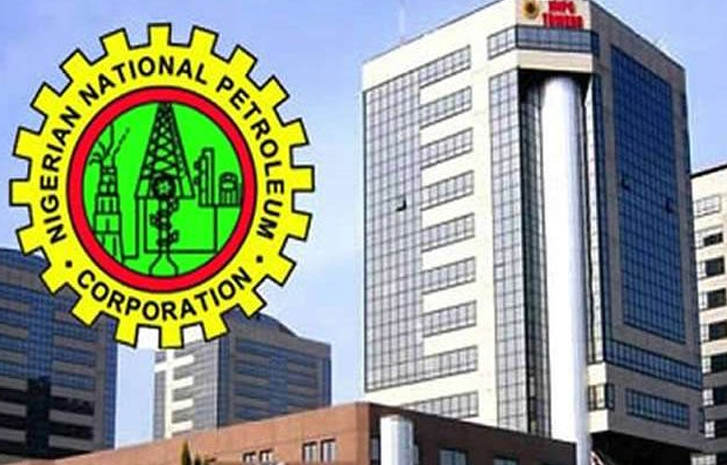 Stakeholders in the finance industry have urged the private sector to support the Federal Government’s drive to finance the infrastructural deficit in the country.
Stakeholders in the finance industry have urged the private sector to support the Federal Government’s drive to finance the infrastructural deficit in the country.
They made the call at the end of the 30th Anniversary and Annual conference of the Finance Correspondents Association of Nigeria (FICAN) held in Dover Hotel Ikeja, Lagos at the weekend.
The conference theme is “Financing Infrastructure and SMEs for inclusive growth in the post-COVID-19 Economy’” as the theme.
The Chief Executive Officer of FMDQ Group, Mr Bola koko, said the COVID-19 pandemic had weakened government revenue to sustain infrastructure funding across the country.
Koko, represented by Mr Yomi Osinubi, Head Private Market, suggested creative ways that the private sector could be brought into infrastructure in the country.
The Director-General of the Debt Management Office (DMO), Ms Patience Oniha, noted that government alone could not address the country’s infrastructural needs, due to lack of funds.
She suggested that there should be creative ways of opening up the system to enable the private sector join hands to pool the capital to fund infrastructure.
“That has started with what we are doing with the road clean-up infrastructure with Dangote trying to take care of some roads.
” Some other private sector players will enjoy that tax incentive to encourage them to participate, bearing in mind that the government alone cannot do it.
“We are expecting you people to put together a proper communique that will advise the government on how to bring in the private sector properly to address our infrastructural gap,” she said.
Oniha was represented by Mr Joe Ugoala, Director, Operational/Research Department, DMO.
The DMO boss said, however, that there was room for more borrowing to finance infrastructure, stressing that investors have a huge interest in the country’s infrastructure development.
She said, “ In the last edition that we just did where the country raised four billion dollars, the idea was that we could raise a minimum of three billion dollars and we found out that people still have an interest in our country.
READ ALSO: Nigeria’s Newspaper Headlines: 98 companies weather COVID-19 impact, post N6.1trn turnover
”Even though we seemed to have doubts, the international investors still have faith.
“They still believe in the fundamentals of this economy. We were asking for three billion dollars, we ended up having 12.2 billion dollars, which was almost 400 per cent of what we actually asked for.
”We had to say this because of our approval from the National Assembly which is within the requirement of the Appropriation Act.
“So, what the country took from that outing was four billion dollars out of the 12.2 billion dollars. You can see that there is so much interest in Nigeria’s instrument across Asia, America, Europe and other parts of the world.
“Basically, we issued three instruments – three tranches of seven-year instrument, 12-year instrument and 30-year instrument. What this means is that if private domestic investors go offshore to borrow, their instruments can be priced as of the sovereign,” she said.
Dr Waheed Olagunju, former acting Managing Director, Bank of Industry (BOI) called on government and the private sector to boost the capacity of the Small and Medium Enterprises (SMEs) sector.
He stressed the need for government and the organised private sector to have a role to play in building the capacity of the people.
“I believe that the government and private sector development partnership will help. We need to work on the eco-system looking at what other countries have done: they invested in industrial park and technology as a short-term measure.
“A railway line, for instance, can be located at the industrial park so that it will be close to where the infrastructure are available”.
He said the world is awash with investable funds in excess of 17 trillion dollars, expressing that Nigeria is one of the best investment environments in the world.
“Investors are looking for where to invest and return-on-investment in Nigeria, prior to COVID-19, was one of the highest in the world.
According to UN statistics, Nigeria was ranked between 21 and 35 per cent on Return-on-Investment, Nigeria has the highest foreign direct investment in Africa. The world wants to do business with Nigeria,” he said.
On her part, the Managing Director/CEO, Fidelity Bank Plc, Mrs Nneka Onyeali-Ikpe, said banks were joining hands with the government and other stakeholders to refinance all of what you see around infrastructure in Nigeria.
Onyeali-Ikpe, represented by Mr Osaigbovo Omorogbe, Divisional Head, SME Banking, said banks were not shying away from their responsibilities of supporting SMEs.
“Commercial banks are not running away from supporting SMEs but joining hands with the government and other stakeholders to refinance all of what you see around infrastructure which is critical to the economy.
“I think the questions that should be answered for every proposal are, ‘Is it bankable?
” If you are going into this, what structure should be in place to ensure that the funds we are going to put in will be recovered back because we have stakeholders and investors who are also looking towards a good result? She queried.

